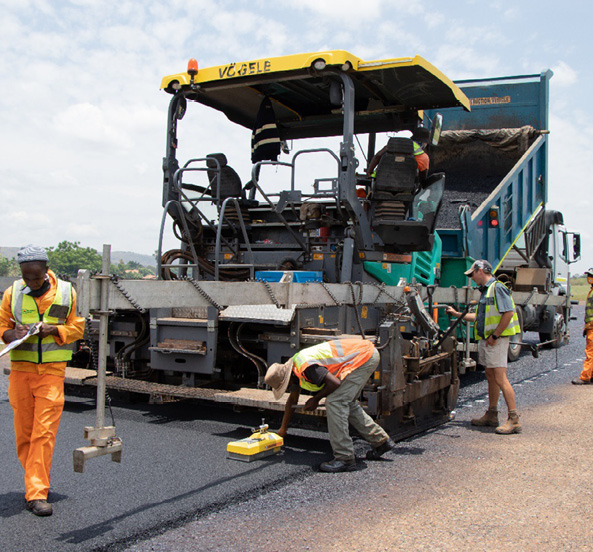News
The Mandela Mining Precinct is pleased to announce an Expression of Interest Call for identification of research partners for the South African Mining Extraction Research, Development and Innovation (SAMERDI) programme and for the SAMERDI Real Time Information Management Systems (RTIMS) programme.
Download documents below for more information.
NantWorks LLC has signed a collaboration agreement with the CSIR and the SAMRC that will initiate the transfer of biologic manufacturing technology for COVID-19 and cancer vaccines and next-generation cell-based immunotherapies.
The research focus of the CSIR has been centred around creating a more inclusive and sustainable approach to future road construction, particularly through increasing the potential for job creation, increasing economic benefits, producing better performing roads and trying to resolve South Africa’s environmental challenges.
Read more on page 44 - 45
The Council for Scientific and Industrial Research (CSIR) – through the Marine and Coastal Operations for Southern Africa (MarCOSouth) consortium – has received one of 12 Global Monitoring for Environment and Security (GMES) and Africa programme eStations that enable access to critical Earth Observation (EO) data.
The CSIR has developed a surveillance system that detects and localises moving targets, over large areas and identifies them as humans or animals.
The CSIR has developed a bioplastic technology for producing 100% biodegradable and compostable plastic. The technology enables single-use plastic products that, when they end up in landfills, bio-degrade within 180 days. The bioplastic products, when combined with organic waste, can turn into compost within 90 days, leaving no toxic residues.
The CSIR has developed an innovative solution using biocatalysis and green chemistry to produce natural Ambrafuran – a highly sought-after agent in the fragrance industry that is used as a fixative for very expensive fragrances.
The CSIR has developed a software product that converts digital text into synthetic speech, in all the 11 official South African languages.



